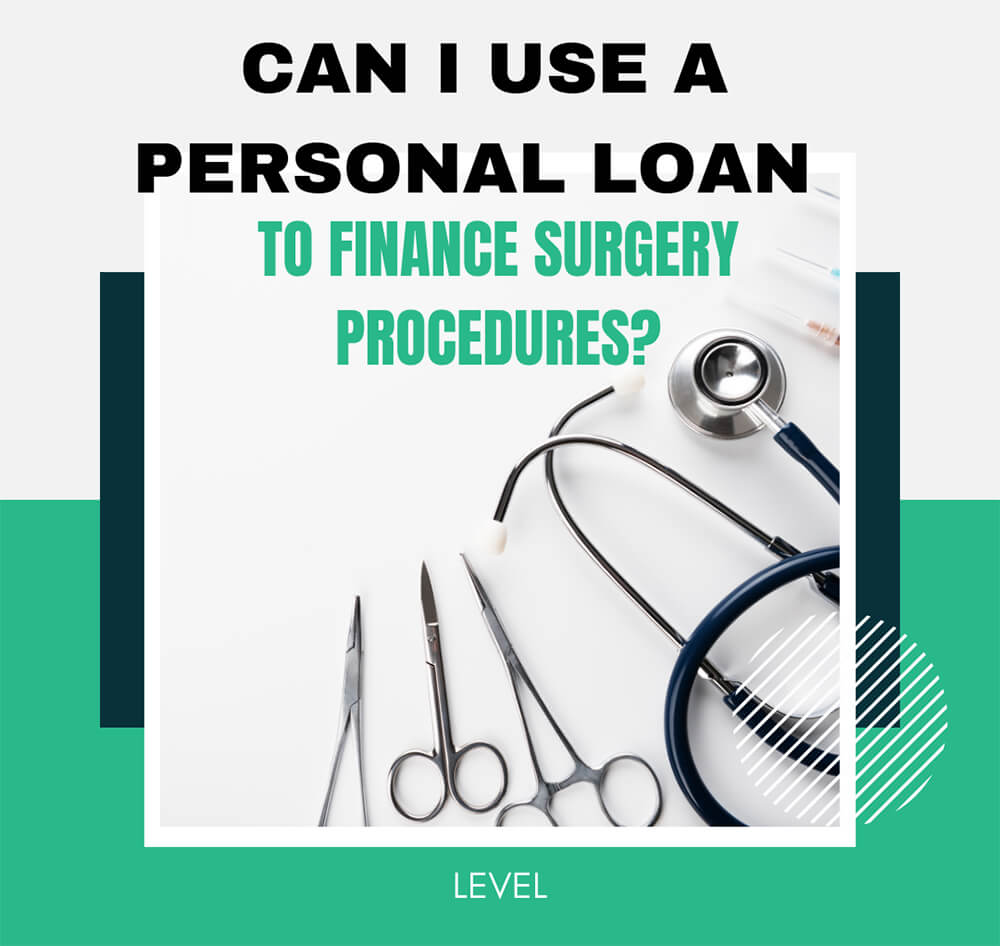
Can I Use a Personal Loan to Finance Surgery Procedures?
The rising cost of surgical procedures can pose a significant financial challenge to individuals who lack comprehensive insurance coverage or substantial savings, forcing them to search for alternative financing solutions to manage these expenses.
This article will look into the feasibility of using personal loans as a way to finance surgical procedures.
We will look into the pros and cons, as well as how they compare to other financing options.
Understanding Personal Loans
A personal loan is a sum of money borrowed from a lender. It is to be repaid in fixed monthly payments over a set period, typically ranging from one to seven years. Interest rates can vary widely, depending on several factors, with rates generally between 5% and 36%.
Personal loans come in two main types: secured, requiring collateral, and unsecured, which does not, with the former typically carrying higher interest rates than the latter.
Selecting the right type of personal loan for surgery involves considering your ability to meet the repayment terms, as well as your comfort level with the associated interest rates.
Key Takeaway: Personal loans are a form of financing that involves borrowing money from a lender and repaying it in fixed monthly payments over a set period, usually with interest rates between 5% and 36%.
Read More: Secured vs Unsecured Personal Loans
Pros of Using Personal Loans for Surgery
- Predictability and stability with fixed interest rates.
- Uniform monthly payments for easier budgeting.
- If unsecured, there is no need for collateral.
- Flexible use of the loan amount for various surgical expenses.
- Covers procedure costs and post-operative care.
- Allows for comprehensive medical care without compromising quality.
Cons of Using Personal Loans for Surgery
- Higher interest rates than other financing options like specialized medical loans or provider payment plans
- They affect your credit score: failure to make timely payments can negatively impact future loan eligibility.
- Financial risks of accumulating debt are significant: changes in your financial situation can make repayment difficult.
- It could lead to financial strain and long-term repercussions on borrowing capabilities, making future credit more expensive or harder to obtain.
How to Secure a Personal Loan for Surgery
Start by assessing your financial situation, including credit score and debt-to-income ratio, to get a clearer picture of your borrowing capacity. Research and compare potential lenders, focusing on interest rates, loan terms, and any fees. Online personal loan providers like Level offer very competitive rates while also speeding up the application process.
Familiarize yourself with the lender’s eligibility criteria to ensure you meet the requirements.
When it comes to preparing and submitting your loan application, make sure you provide all necessary documentation, such as income verification and identification.
To enhance your approval odds, aim to improve your credit score by paying down existing debts and making timely bill payments.
Lowering your debt-to-income ratio can also make you a more appealing candidate to lenders. Ensure your application includes comprehensive documentation to swiftly move through the approval process.
Key Takeaway: To secure a personal loan for surgery, assess your financial situation, research and compare lenders, familiarize yourself with eligibility criteria, and provide all necessary documentation.
Alternatives to Personal Loans
- Medical Credit Cards: Designed for healthcare expenses with interest-free periods, offering cost-effectiveness if paid off within that timeframe. However, high interest rates after the promotional period can be a downside.
- Healthcare Installment Plans: Provided directly by healthcare providers, allowing straightforward cost management. However, they require good credit for the best terms.
- Health Savings Account (HSA): It offers a tax-advantaged way to pay for eligible medical expenses with pre-tax dollars. Limited to individuals with high-deductible health plans, possibly restricting accessibility.
Each option offers unique merits and limitations compared to personal loans, requiring careful evaluation based on yout financial situation and healthcare needs.
To Wrap It Up
Financing surgery through personal loans presents a viable path for many, offering stability with fixed payments and the flexibility to cover a wide range of expenses without collateral.
However, this option is not without its caveats, which include higher interest rates and the impact on one’s credit score, underlining the importance of judicious financial planning and considering alternatives like medical credit cards, healthcare installment plans, or HSAs.
As individuals explore their options, it’s vital to balance immediate healthcare needs with long-term financial health. Making an informed, thoughtful decision about how to finance surgery is a powerful step toward managing both your physical well-being and financial stability.
Empower yourself with knowledge, weigh your options carefully, and you’ll find the path that best supports your healthcare needs and financial well-being.






Sorry, the comment form is closed at this time.